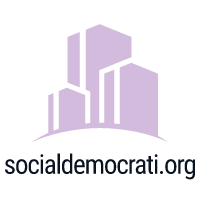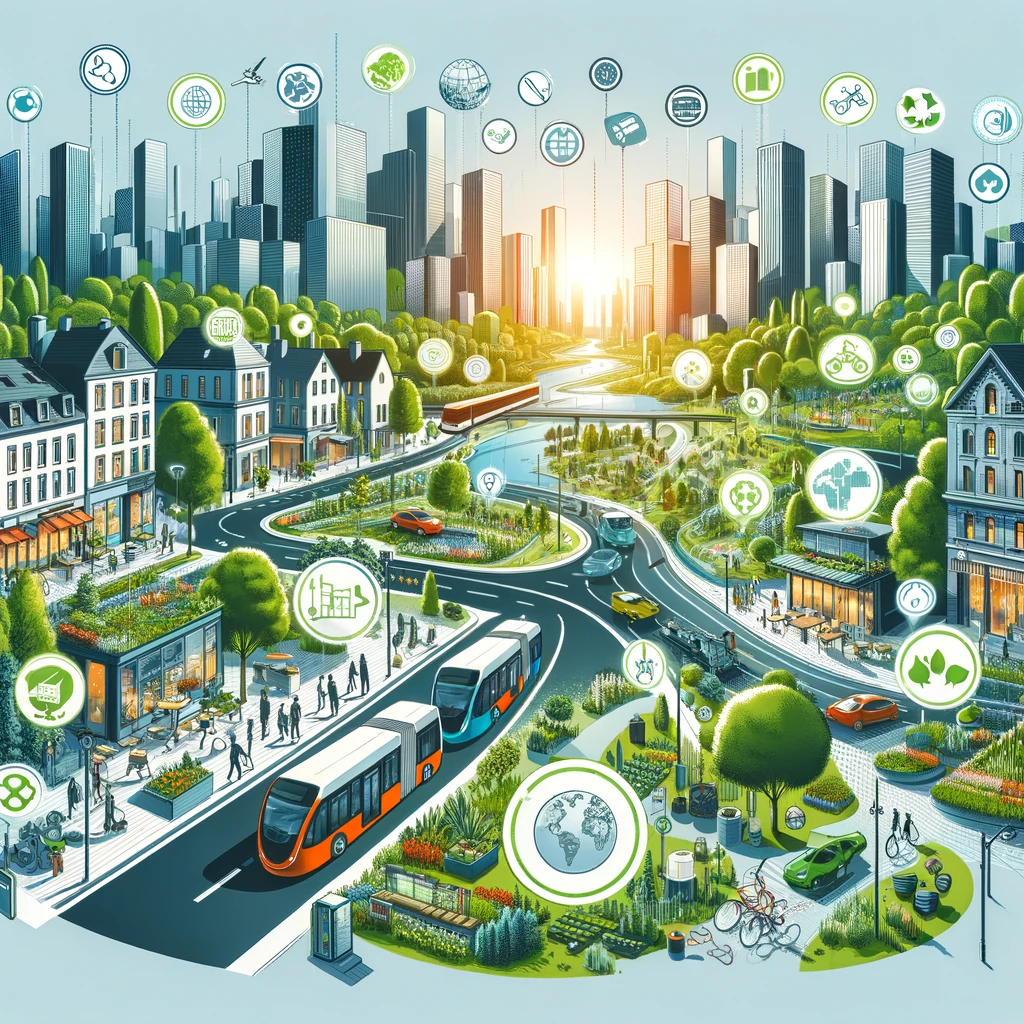Cities are dynamic environments where every aspect of the lives of citizens can be improved through targeted municipal initiatives. From sustainable development to social inclusion, from infrastructure to green spaces, the opportunities to improve the quality of life in cities are diverse and require an integrated approach.
Improving transport infrastructure
One of the main areas of focus for municipalities is the development of transport infrastructure. An efficient and accessible transport network facilitates the movement of citizens, reduces congestion and helps to reduce emissions. The introduction of low-emission public transport systems such as trams, subways and buses, as well as pedestrian and cycling facilities, can significantly improve the quality of the urban environment.
Development of green spaces and parks
The revival and expansion of green spaces in cities is transforming the urban landscape, bringing oases of tranquillity and beauty.
Parks and green spaces, as breathing spaces for urban lungs, not only beautify cities but also fulfil many functions, from air purification to creating favourable conditions for recreation and social interactions of city dwellers.
These spaces become not just places for strolling, but also centres of cultural and educational activity, organising outdoor festivals and exhibitions. In addition, landscaping helps to reduce stress levels among the urban population and increases overall satisfaction with life in the city.

Implementation of sustainable development programmes
As part of the drive towards a greener future, cities are actively implementing measures aimed at minimising environmental impact and optimising the use of natural resources.
These range from switching to renewable energy sources to improving waste and water management systems.
Programs aimed at reducing the energy consumption of urban buildings, using environmentally friendly vehicles and developing green spaces not only contribute to reducing the carbon footprint, but also significantly improve the quality of life of citizens by creating a healthier and more comfortable urban environment.
Increasing accessibility of public transport
| Aspect | Current status | Targeted measures of improvement | Expected result |
| Route network | Limited coverage | Expansion of the route network to include new neighbourhoods | Increased coverage of public transport services |
| Frequency of traffic | Infrequent intervals on many routes | Increased number of trips during peak hours | Reduced waiting times and improved user experience |
| Pricing | Uniform fare | Introduction of flexible fares, discounts for certain categories of citizens | Make public transport more accessible to all segments of the population |
| Environmental friendliness | Use of traditional energy sources | Transition to electric buses and trams | Reduce emissions of harmful substances and improve the environmental situation |
| Infrastructure | Insufficiently developed | Construction of new stops equipped for the needs of low mobility groups of population | Improving passenger comfort and safety |
The implementation of these measures will create a more inclusive, comfortable and environmentally sustainable public transport system that can meet the needs of a growing urban population and make the urban environment more attractive to live in.
Small and medium-sized business support programmes
City governments play a key role in creating a favourable environment for the development of SMEs, which are the foundation of economic growth and a source of innovation. Municipalities can implement a number of programmes to support entrepreneurs:
- Grant programmes for start-ups: providing seed capital for new business projects that demonstrate high potential for growth and innovation. This allows entrepreneurs to realise their ideas without undue pressure of financial obligations at the very beginning of their journey.
- Mentoring and training: organising educational programmes, seminars and master classes from experienced businessmen and specialists to improve the skills of entrepreneurs and their employees. This approach facilitates the exchange of knowledge and experience, strengthens the business community and stimulates the development of entrepreneurial initiatives.
- Tax incentives and rent subsidies: creating tax incentives and rent subsidy programmes for SMEs, especially in new and redeveloped areas of the city, to stimulate their development and diversify the city economy.
- Supporting access to finance: working with banks and financial institutions to provide entrepreneurs with more affordable credit and loans. This may include loan guarantees or assistance in creating business plans and financial reports to successfully obtain a loan.
- Developing business infrastructure: building business incubators and co-working spaces, providing specialised spaces for trade, manufacturing and services. The creation of such infrastructure supports start-up and growing companies by providing them with the necessary resources and conditions for development.
Strengthening public safety
Ensuring the safety of citizens is one of the main objectives of municipalities. Initiatives to enhance public safety cover the development of video surveillance systems and smart city lighting to improve safety in public spaces and on the streets, as well as the organisation of public first responders, including patrols and emergency services, to prevent crime and respond quickly to emergencies.
FAQ
City authorities are initiating projects to revive and expand green spaces, creating parks and green areas that serve not only to beautify the city, but also to purify the air, organise cultural and educational events, and reduce stress levels among residents.
In pedestrian and bicycle paths, modernising public transport with the introduction of environmentally friendly electric buses, and integrating different modes of transport into a single network to ensure convenient and accessible movement around the city.
Municipalities offer grant programmes for start-ups, mentoring and training for entrepreneurs, preferential taxation and rent subsidies, support in accessing finance through banks and the creation of business infrastructure such as business incubators and co-working spaces.

